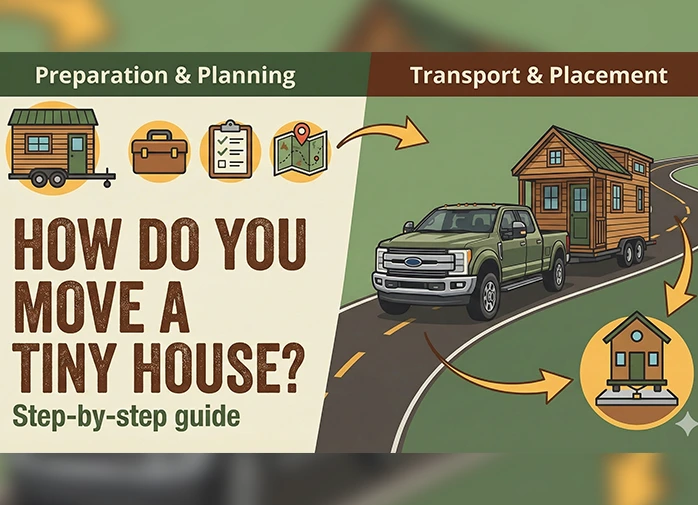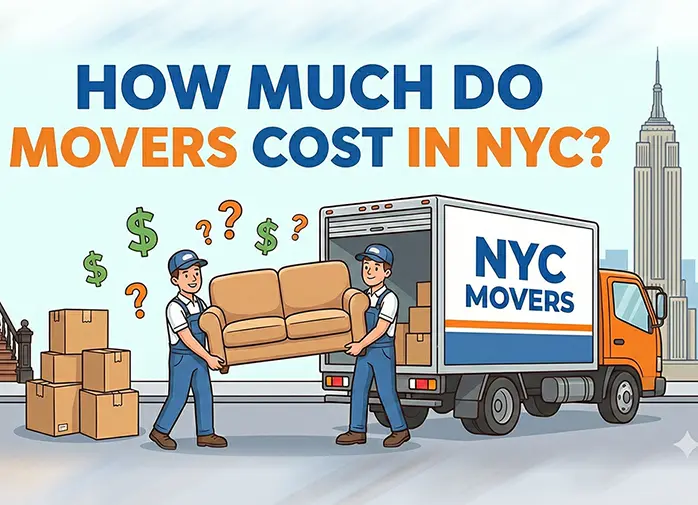Moving Plants Across State Borders: Laws, Care & Tips

People who love gardening consider their plants as family members. They have a sentimental attachment to them. When such people move to a new state, they prefer to take their plants to the new home. So, if you are moving soon, you should plan your move now and search for the best mover near me. Planning is essential for long-distance moving especially when you plan to relocate your plants.
Moving plants is not easy as there are different laws in different states of the U.S. Some movers do not offer plant moving services so it is better to find a moving company in advance who can fulfill all your moving needs. Meanwhile, you take care of your plants during and before the move. In this article, we have provided details about the laws for moving plants in the US, the right way to move plants, and how to take care of your plants while relocating.
Is it okay to relocate plants across the country?
Moving is a challenging step of one’s life and when you have to decide whether to take your plants with you or not, it will be emotionally difficult. The decision should be made after considering the best for the plants. There are a few parameters you can consider to reach some decision-
- Climatic variation- It is important to understand whether your plants can survive in new climatic conditions of the new state. Check the weather of the new state and research whether your plants can survive the change.
- Rainfall- A good rain is important for plants to bloom. But if your new state will have a lower rainfall than the current one, it will not be wise to take plants in such weather.
- Light- Sunny days are essential for plants and should be in moderation. Excessive sunlight can be harmful to the plants as they will burn. So, if you are thinking of taking your plants to a place with sunlight issues then prepare the garden area for it.
After considering these points, make your decision and look out for options. If you plan to take plants to the new house, start looking for moving companies who will transport them. And if you decide not to take them, find a new owner. You can donate the plants to the new owner, friends, family, charity, nursing home, or a nursery.
Are there any laws about relocating plants across the country?
Relocating plants might be your choice while moving to a new state, but do not forget to check the restrictions and laws. According to the USDA (U.S. Department of Agriculture), at the Federal level, the importation and interstate movement of certain commercial plants is restricted due to the risk of carrying pests or diseases. USDA also regulates the movement of plants considered parasitic or “Federal noxious weeds” as they can damage natural resources and agriculture.
USDA does not regulate the interstate movement of houseplants carried by travelers. However, each state has its own rules about the plants that a traveler may bring from a different state. If you wish to relocate plants to your destination state, contact the State Plant Regulatory Official in the destination state to learn about the permits and restrictions.
California, Florida, Hawaii, Arizona, and Idaho have stricter rules for relocating plants from different states. Most states permit the transport of indoor plants that grow in sterilized potting soil that will enter the state and do not harm healthy plants and crops. California does not allow shipping in citrus plants as there can be a threat of pests.
How to transport plants across the country?
Most moving companies across the U.S. do not provide relocation services for plants. There are several other ways to move your plants to the new state, to your new home.
- Take them in the car- This is one of the best ways to take your plants, as you can nurture them during the move. You can control the environment including temperature, ventilation, and water. Avoid placing the plants in the trunk as it will prevent them from getting essentials like water and sunlight. In case you have an overnight journey, take the plants to the hotel room and don’t forget them in the car.
- Hire a shipping company- If you are traveling by other modes or have no space in your car to keep plants, then consider hiring a shipping service. Several shipping companies transport plants and flowers across the state borders. You can check with your local florists who can help you find affordable and reliable shipping services. The other mode for shipping plants across states is via the U.S. Postal Service. They will mail your plants but you need to mention it in the box “live plant” for priority mail service. There are certain guidelines and regulations regarding mailing a plant via USPS.
- Transport via Air Freight Service- If you are flying to the destination state, you can take your plants on the same commercial flight. However, you need to enquire with the airline whether they can transport it or not. There are restrictions on transporting some plants because of risks.
It does not matter which mode you choose to transport your plants to the destination state, the only thing is to ensure that the plants are safe and packaged properly.
How to prepare plants for the move?
Since you have decided to transport your plants to the destination state, you should take special care. There are some steps that you should follow to keep your plants healthy during the move.
- Buy packing supplies- If you are moving your plants to another state, you have to pack them with utmost safety. Following are the essential packing supplies for packing plants for the move-
- Sturdy moving box for each plant
- Sterilized potting soil
- Plastic pots to prevent breaking of clay pots during transit
- Packing sheets, bubble wrap, or newspaper
- Flea collars
- Paper towels, plant ties, plastic bags, etc.
- Prepare plants for the move- For a risk-free move of your plant, you need to re-pot them in sterile soil in plastic containers. It is recommended to use the same size plastic pots as the clay pots. After re-potting the plants, give them time to adjust to new pots. So, start this process at least a week before the move. Make sure that there are no bugs in your plants and put a flea collar at the base of the pot to draw the pests out. Before moving plants by any mode, there will be an inspection by the local agriculture department and if your plants get clearance for transport, the authorities will issue a State Phytosanitary Certificate. During the transit, the certificate will be required when your shipment crosses the borders. Keep the soil moist, so water your plants 2-3 days before the move.
- Packing the Plants- Packaging a plant is a tricky process and will be time-consuming also. It is important to pack plants with utmost care to ensure that your plants will reach safely to their new home. Here are some steps to follow while packing plants for the move-
- Wrap the pots with plastic bags and tie them in case they trip during transit.
- Put these pots in the boxes and stuff the space with bubble wrap or newspaper.
- Remember to poke holes in the wraps to allow aeration.
- Label each pot as “Live Plant” and “fragile”.
- If some plants are huge or cannot be moved, then keep a cutting. Take the cutting and try to re-grow it in the new house.
Need some more details on moving a plant?
Van Lines Move has industry experts who can guide you about relocating a plant. You can book your move with our professional movers and experience a move you never had.
Categories
- Long Distance Moving153
- Local Moving119
- Commercial Moving40
- Residential Moving34
- Last – Minute Moving25
- Moving Tips & Lifestyle10
- Furniture Moving9
- Moving Tips & How-To Guides8
- Moving services6
- Moving Cost5
- Moving Cost Calculator5
- moving tips4
- state to state movers4
- Piano Moving3
- Car Transportation3
- Truck Rental3
- Local Move3
- Moving companies3
- best moving rates3
- cheap moving companies3
- affordable moving companies3
- full-service movers3
- Moving Cost Guides3
- Junk Removal2
- Moving Container2
- Senior Moving2
- Senior Relocation Moving Companies2
- Moving Tools2
- Moving Estimates2
- interstate moving2
- College Moving2
- Moving2
- Dorm Moving2
- cross-country move2
- Household moving2
- Moving Costs & Budgeting2
- Moving Tips & State Guides2
- Moving Tips & Planning2
- Heavy Equipment1
- Senior Moving Services1
- office moving1
- office relocation1
- employee relocation1
- Car Transport1
- Vehicle Shipping1
- Car Shipping Services1
- Artificial Intelligence1
- Office Moving Services1
- Commercial Moving Companies1
- Corporate Moving Services1
- Corporate Movers1
- full-service moving companies1
- sustainable moving companies1
- green movers1
- Moving in US1
- Best places to move in 20251
- 2025 moving1
- Full-Service Moving Companies1
- College moving services1
- Moving to College1
- Tips for moving1
- donate1
- sell1
- Movers in California1
- Movers in Studio City1
- Moving to California1
- Laws about Moving into California1
- Moving Laws1
- House moving1
- packing1
- cheap moving ways1
- Moving guide1
- International moving1
- moving across countries1
- international relocation program1
- move out cleaning1
- right packing supplies1
- pack while moving1
- Apartment moving1
- PODS1
- moving out1
- state to state move1
- California movers1
- Truck Rental1
- US Territory Relocation1
- International Moving1
- Shipping & Moving Tips1
- Moving Tips1
- Relocation Guide1
- Moving Budget Guide1
- Relocation Guides & Incentives1
- Moving Tools & Equipment Guides1
- Moving Services & Options1
- Moving Tips & How-To Guides1
- Moving Day & Settling In1
- Mobile Home Moving1
- Moving Guide & Tips1
- Moving Tips & State Comparisons1
- Moving Tips & City Guides1
- Moving Tips & Cost Guides1
- Long-Distance Moving Tips1
- Moving Tips & Financial Planning1
- Moving Tips & Home Preparation1
- Vehicle Shipping & Auto Transport1
- Marketing & Lead Generation1
- International Moving Guides1
- San Francisco Moving Guide1
- NYC Moving1
- Local Movers1
- Budget Moving1
- Student Moving1
- Affordable Moving1
- Specialty Moving Guides1

 Local Movers
Local Movers Last-Minute Movers
Last-Minute Movers Junk Removal
Junk Removal Long Distance Movers
Long Distance Movers Piano Movers
Piano Movers Heavy Equipment
Heavy Equipment Commercial Movers
Commercial Movers Moving Container
Moving Container Car Transportation
Car Transportation Furniture Movers
Furniture Movers Truck Rental
Truck Rental Moving Cost Calculator
Moving Cost Calculator Moving Planner
Moving Planner Packing Calculator
Packing Calculator Moving Checklist
Moving Checklist Moving Insurance
Moving Insurance FAQ
FAQ Contact Us
Contact Us Moving Loan
Moving Loan About Us
About Us











